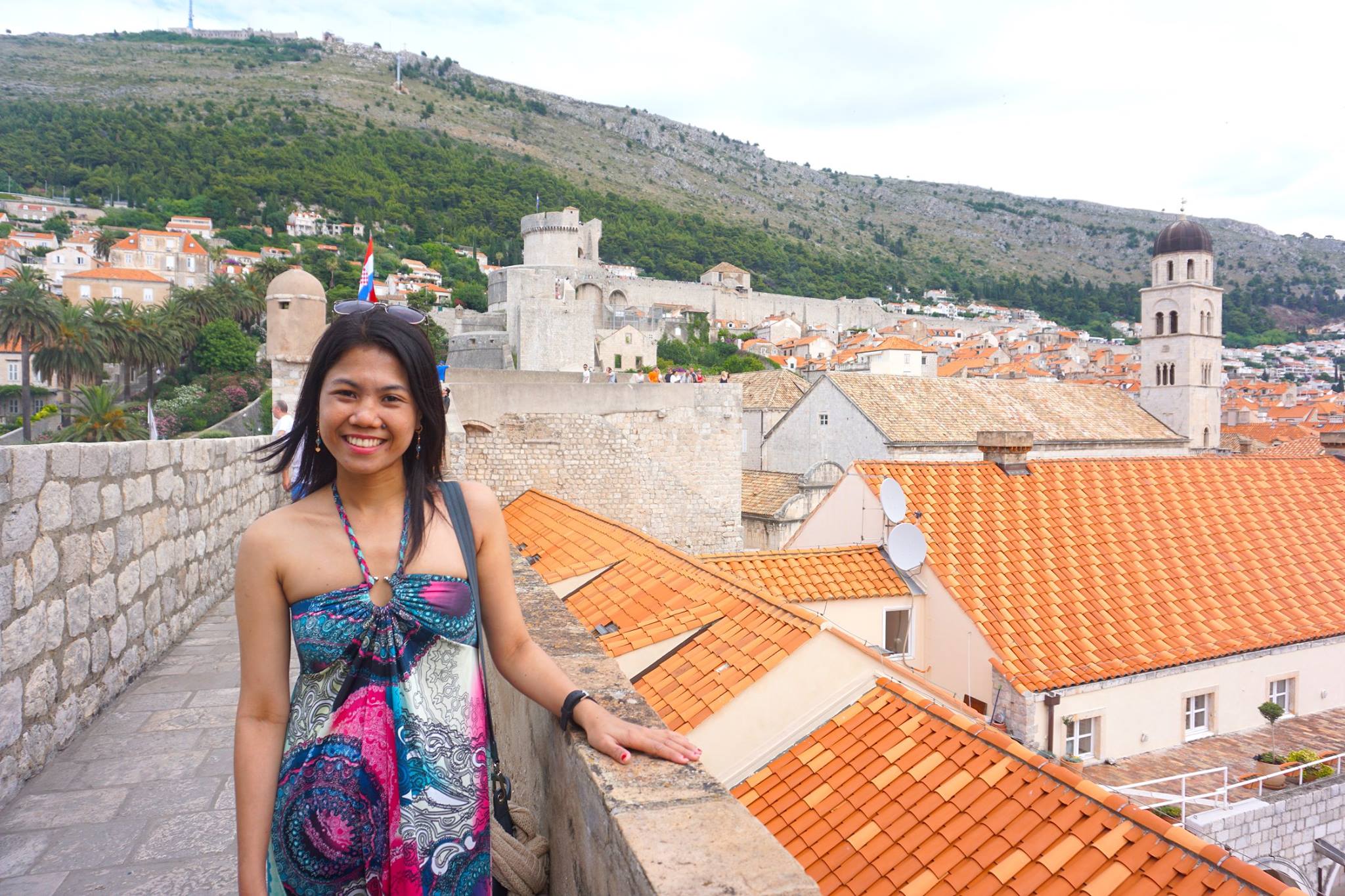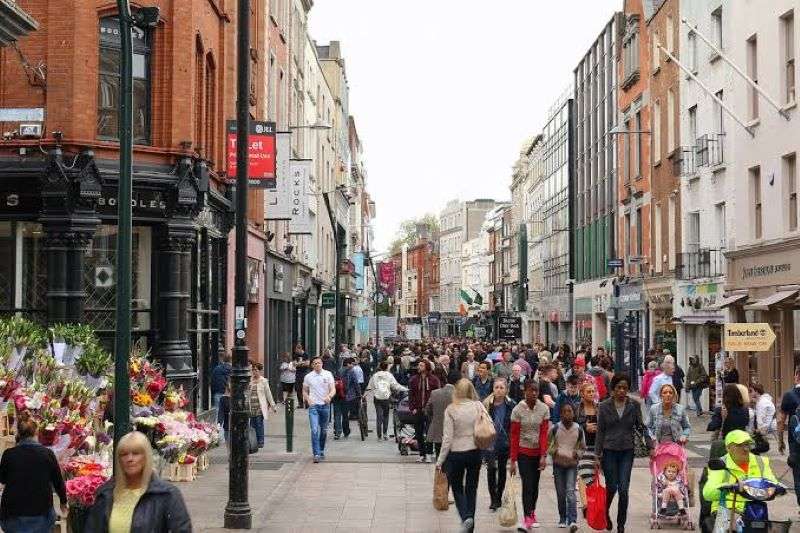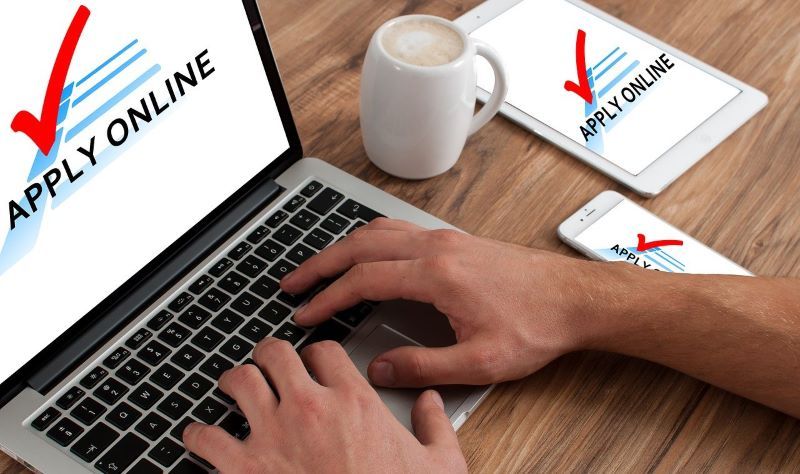Are you wondering how to find a job in Ireland?
The standard of living in Ireland is often regarded as one of the best in the world. Recruiters from all over the world are drawn to this country because of the considerable investments made here by multinational corporations.
In this guide, we hope to give helpful information on how to find a job in Ireland, especially for people who are from other countries.
Things you'll find in this article
How To Find A Job In Ireland
In recent years, Ireland has undergone a remarkable transformation. A cosmopolitan country has been established in the present day, yet still maintains its unique culture and identity. In terms of safety, it is one of the most secure countries in the world.
As of 2020, the Global Peace Index ranks the world’s most peaceful nations. Ireland was ranked No. 12. It has also been in the top 15 for the entire decade.
There is a high degree of satisfaction among people who visit this country, which is aptly nicknamed the Emerald Isle.
Ireland is often considered to be one of the world’s most welcoming countries. It has a distinct traditional culture worth exploring, as well as stunning scenery that will make you want to stay longer.
Over the past decade or so, people are moving to Ireland for jobs in record numbers, which is not surprising.
Those who are considering working in Ireland should check out this guide that we have put together, to learn everything you need to know before making the big move to work in Ireland.

Related Read:
- Is Ireland Safe?
- Ireland Bucket List: Top Things To Do In Ireland
- Best 5-Star Hotels In Ireland
- When Is The Best Time To Visit Ireland?
- Best Amusement Parks in Ireland
Working In Ireland: What To Expect
You’re probably debating whether or not moving to Ireland to work is worth it. What is the salary? What are the advantages of working in this country? Are there any particular things to expect with regards to the work environment and culture? Read on and learn what it’s like to work in Ireland.
Average / Minimum Salary
The average income in Ireland has been steadily rising over the last few years as the country’s workforce has grown.
In the last decade, wages in Ireland have risen an average of 5% to 7% per year. As a general rule, the average yearly wage in the country stands at about around 39,000 EUR (43,000 USD).
This is based on the fact that a full-time worker earns approximately 48,000 EUR (53,000 USD) per year, while a part-time worker earns approximately 18,000 EUR (20,000 USD).
For context, the national minimum wage is 10.80 EUR (11.40 USD) per hour or around 20.000 EUR (22,000 USD) per year.
Work Conditions
There are many safeguards in place for those who work in Ireland, many of which are a result of the country’s membership in the EU. The working week, for example, should not be longer than 48 hours. Employees are entitled to maternity leave, sick leave, public holidays, and paid vacations.
Office Culture
There are essential features of Irish office culture to be aware of when working there.
Here’s a list of a few things that define Irish workplace culture:
- You should always come on time for business meetings, even if the Irish aren’t as punctual as other European countries.
- In Ireland, colleagues greet each other by shaking hands and looking at one other’s eyes.
- Meetings often take place in coffee shops, bars, or restaurants. There will be polite discussion before the event officially begins.
- What to Wear to Work: The anticipated dress code at work varies by employer. In general, the dress code for business in Ireland is simple, yet well-put and modest.
- There is a hierarchical culture in Irish business, yet it is also very laid-back. Even though decisions are decided from the top-down, lower-ranking employees should not be afraid to express their views to management.
- People in this country aren’t used to the practice of giving gifts. Bringing a present to a meeting with your Irish coworkers is a No-No. But if you are invited to dinner by a coworker, you can bring a bottle of wine or chocolates.
- It is quite acceptable for jokes to be made in the workplace. The Irish have a reputation for being jokesters, hence the famous Irish humor., and it’s safe to say that they never lose this distinct Irish character even at work.
Is It Easy To Find A Job in Ireland?
The answer to this question varies from person to person.
It is both Yes and No. A sample scenario is the high rate of employee turnover in the hospitality business, so it is one of the simplest to get a job in. Ireland is gradually seeing a rebound in that industry as the world l recovers from the coronavirus.
For highly-specialized positions, however, the situation is rather different. For the most profitable roles on the Irish jobs websites, there are usually a large number of competent applicants.
Many high-quality graduates are produced by the best education systems in the world, which makes it more challenging to secure a high-paying job. A top-notch CV and cover letter are vital in this case.
Who Can Work in Ireland?
Individuals from EU member states, the United Kingdom, Switzerland, or an EEA country are permitted to work in Ireland. An employment permit is not required for these applicants, and their family members can move in with them.
To have the same rights to work and reside in Ireland as your spouse or civil partner, they will need permission to remain (as part of EU Treaty Rights) if they are moving with you from a non-EEA country.
People from other countries typically need one of the nine types of work permits, which will be discussed later in this guide.
How Can a Foreigner Get a Job in Ireland?
Getting a job in Ireland depends on where in the world you come from. EEA countries recognize each other’s qualifications.
As a result, highly qualified individuals are more likely to secure a job than those who lack these skills. A PPS number is often required for foreigners to apply for jobs in Ireland once they have settled in the country.
Non-EEA citizens have a harder time. These people require a work permit. In some situations, you must also earn a certain minimum salary to be granted authorization to work in Ireland.
Requirements to Work in Ireland
Language
The requirements to work vary from job to job, but there are a few fairly standard eligibility requirements. The first is the language: the national language of Ireland is English. Expats who are not fluent should try to practice their skills before applying for a job.
Education
A university degree is an additional prerequisite for employment in Ireland, but it is not a requirement in and of itself. Make yourself stick out as much as possible because you’ll be competing with a lot of other applicants. One way to increase your chances is to get a college or better, a postgraduate degree.
Your CV will also be required by the Irish immigration authorities when you apply for a work visa. To demonstrate your suitability for the position, you must show that you have relevant work experience and the requisite credentials.
If you don’t have a college degree, you may not be able to get a work permit from the immigration authorities.
Ireland’s Work Visa
To work in Ireland, EEA citizens do not need a work visa or permit. The European Economic Area (EEA) includes the EU’s member states as well as Liechtenstein, Norway, the United Kingdom, Switzerland, and Iceland. Unless exempted, all non-EEA workers are required to get a work permit.
Visas come in four types. For anyone hoping to work in Ireland, the “D” visa is what you need. With this long-stay visa, you can stay in Ireland for an extended time. Note that you should apply for this visa three months before your intended departure date,
How to Apply for a Work Permit in Ireland
The Employment Permits Online System (EPOS) allows you or your company to apply for a work permit online.
If you are applying for a work permit in Ireland, you need one of a total of nine different permits.
- Contract for Services
- Critical Skills
- Dependant/Partner/Spouse
- Exchange Agreement
- General Employment Permit
- Intra-Company Transfer
- Internship
- Reactivation
- Sport & Cultural
In general, applicants must prove that they have the skills, knowledge, and qualifications to fulfill the position. In most cases, you need to have a work contract or job offer from an Irish company.
How Long It Take To Get A Work Permit In Ireland
A MyWork-ID number will be provided to you when you begin an online application. It’s possible to halt the procedure and resume it at a later time.
You have a maximum of 28 days to complete the application after you begin it. At that time, all of your data is lost forever. Your request is routed to the appropriate department after being asked for the sort of permission you’re seeking.
After applying, you should expect a response time of 6–8 weeks. In some cases, it can take up to 13 weeks for applicants to receive a response.
General Employment Permit holders are required to renew their permits every two years. At this stage, you have the option of extending it for a further three years. Holders with a valid work visa can apply for permanent residence after five years.
Documents Needed To Apply For A Work Permit In Ireland
When applying for a permit, you’ll need to provide a slew of documents. The following may be included:
- The duly-accomplished application form.
- A valid passport
- Photos that comply with official guidelines.
- Payment proof (for applicable fees)
- Proof of legal residence in your current country.
- A letter that proves and clarifies that the intention of moving to Ireland is to work.
- Proof of your qualifications
- Details of previous work experience.
- Proof of funds (should be sufficient enough to cover a few month’s rent
- Medical insurance
- Proof that you have accommodation secured in Ireland.
- A self-addressed pre-paid envelope.
Where To Find A Job In Ireland
You may now start searching for a job in Ireland now that you know what to anticipate and have the relevant certifications and permits. To get a job in Ireland, check out these options.
Recruitment Agencies in Ireland
When searching for a new job, recruitment firms can be a valuable source of information. They go out of their way to hire people with the necessary skills in high-demand fields.
However, before you arrive in Ireland, you may find it impossible to get an answer from the job agencies. The best way to get a work visa in Ireland if you don’t have a job offer is to contact the agencies when you arrive. Show that you’ve made the decision, rather than just mulling over it.
Recruitment agencies receive a lot of inquiries, therefore they may not be as responsive as they should be. That’s why you should sign up with multiple recruitment firms to boost your chances of finding a job. For the most part, it’s not a good idea to apply for the same position through many agencies.
In Ireland, there are a plethora of staffing firms to choose from. Some companies specialize in a single industry, while others are more general.
You may use the Employment and Recruitment Federation’s (ERF) agency directory and the agency list is a smart place to begin your search.
Irish Job Websites
Job websites are multiplying in number and variety, making it easier than ever to find work. Additionally, they offer a wealth of information on such topics as how to write a winning resume and cover letter for the Irish market, as well as how to ace an interview. Advertising through online publications is becoming more and more popular among businesses.
- Irish Jobs – features a wide and varied selection of jobs easy to navigate from the top companies in Ireland. an easy-to-navigate site and app where you can quickly search for jobs in your chosen industry.
- Monster.ie– this site also comes with an app, and apart from job boards, features a career advice section.
- RecruitIreland – One of Ireland’s most cost-effective and efficient employment websites. It is a place where companies and recruitment firms can advertise and market their open positions.
- Job Ads in Irish NewspapersMany jobs in Ireland are still advertised in newspapers, despite the prevalence of job postings on online job boards. Job listings are published on the Irish Times website, as well as a web-based search function for potential employees.
You may also check out The Irish Independent, which publishes the Sunday Independent, and The Evening Herald.
- Open Days and Recruitment Days in Ireland
Open days or recruitment days in Ireland and other events may be advertised online. Learn more about the companies and job prospects available to you by attending networking events. It may even lead to employment.
Tips On How To Find A Job In Ireland For Foreigners
Find out what jobs are in demand in Ireland
Apple, Ryanair, Microsoft, and Google are just a few of the many multinationals with significant operations in Ireland. However, many of the more lucrative jobs are located in Dublin. Here’s a quick rundown of the most sought-after jobs in Ireland. Is any of these your expertise?
- Automation Engineers
- Account Managers
- Business Developers
- Professionals in the Asset Management sub-sector of Financial Services
- Professionals – Compliance in the Insurance niche
- Professionals – Multilingual Experts across the board
- Risk and Compliance
- Software Developers & Software Engineers
Know the best industries to work in
If you’re looking for a job, don’t always go for the most popular ones. The majority of large companies, on the other hand, provide competitive compensation and benefits. Here are a few sectors to keep an eye on:
- Accounting and Auditing
The demand for competent accountants is increasing as a result of the increased need for financial accountability. Licensed accountants can choose from a wide range of rewarding career paths.
- IT Services
There are still a lot of high-profile corporations in Ireland that are willing to pay significant money for the best and brightest. Contractors are likewise in high demand.
- Medical/Health
Nursing is currently in the midst of a recruitment crisis. But the number of private healthcare providers has increased, which could alleviate some of the issues. Additionally, the pharmaceutical industry is well-positioned to benefit from the current pandemic. It’s essential for the discovery of new drugs to cure diseases and the creation of a vaccine.
More Tips on Finding a Job in Ireland
Now that you’ve learned everything you need to know about working in Ireland, what are some more things you should think about and prepare for to secure a job there? If you’re looking for work in Ireland, whether you’re new to the country or already a resident, here are some things to keep in mind:
- Your CV/Resume
The format of an Irish CV is the same as that of other European resumes. Name, address, and phone number go at the very top of the page. You should then outline your education and achievements, beginning with the most recent. Following that, you’ll want to give a rundown of your professional experience, going from most recent to oldest.
- Crafting Your Cover Letter
You’ll have to compete with an enormous number of other job seekers due to Ireland’s excellent quality of life and attractive earnings. Before applying for a position, do some research on the organization you’re interested in and tailor your cover letter to their demands. If you include specifics about the company in your cover letter, recruiters will be impressed.
- Preparing for the Interview
When interviewing for a job, it is recommended that you wear “business casual” attire, regardless of the position for which you are applying or if the interview will be conducted by video chat.
A blouse paired with an A-line skirt or dress pants is ideal for women. Trousers, button-up shirts, and ties are all appropriate attire for men. You don’t have to be concerned about wearing dark or neutral hues. Lastly, be on time for the interview.

Hi, I’m Christine – a full-time traveler and career woman. Although I’m from the Philippines, my location independent career took me to over 60 countries for the past 12 years. I also lived in 4 continents – from the Caribbean, South East Asia, Africa and now in Europe. But despite living in several countries, my love for Ireland remains the same. A country that had been a part of my life since I was 14 because of my love for Irish music and bands. Ireland Travel Guides was born because of this passion and hopefully, in some little ways, this website will be able to help you on your next trip to Ireland.





